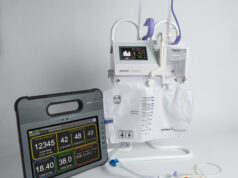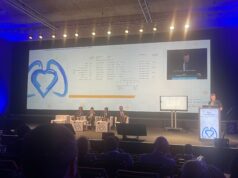 Levels of high-sensitivity troponin I after cardiac surgery that were associated with an increased risk of death within 30 days were substantially higher than levels currently recommended to define clinically important periprocedural myocardial injury, a study in the New England Journal of Medicine has concluded.
Levels of high-sensitivity troponin I after cardiac surgery that were associated with an increased risk of death within 30 days were substantially higher than levels currently recommended to define clinically important periprocedural myocardial injury, a study in the New England Journal of Medicine has concluded.
Investigators described the finding as a “landmark” for care of patients following cardiac surgery, as it provides a marker that is fast and reliable for monitoring their recovery and could help timing procedures to improve outcomes.
The VISION study, international prospective cohort study, assessed patients undergoing cardiac surgery, measuring troponin levels were obtained three to 12 hours after surgery and on days one, two, and three after their procedure, and assessing death and the incidence of major vascular complications.
The research team, which was led by PJ Devereaux (McMaster University, Ontario, Canada), performed Cox analyses using a regression spline that explored the relationship between peak troponin measurements and 30-day mortality, adjusting for scores on the European System for Cardiac Operative Risk Evaluation II which estimates the risk of death after cardiac surgery on the basis of 18 variables, including age and sex.
The study involved 15,984 adult patients with an average age just over 63 years undergoing cardiac surgery. Patients were from 12 countries, with more than a third of the countries being outside of North America and Europe.
Investigators found that by 30 days after heart surgery, 2.1% of patients had died, and 2.9% had experience a major vascular complication, such as heart attack, stroke, or life-threatening blot clot.
“We found that the levels of troponin associated with an increased risk of death within 30 days were substantially higher—200 to 500 times the normal value—than troponin levels that surgical teams are currently told defines the risk of a patient having one of the most common complications after heart surgery—myocardial injury, a heart muscle injury associated with increased deaths,” said Devereaux.
“This study is a landmark for the health teams taking care of patients after cardiac surgery. For the first time, we have a marker that is fast and reliable for the monitoring of these patients after cardiac surgery,” said André Lamy, a study investigator.
“Our findings will help further studies look at the timing of treatments and procedures to improve patient outcomes after heart surgery,” said investigator Richard Whitlock.










